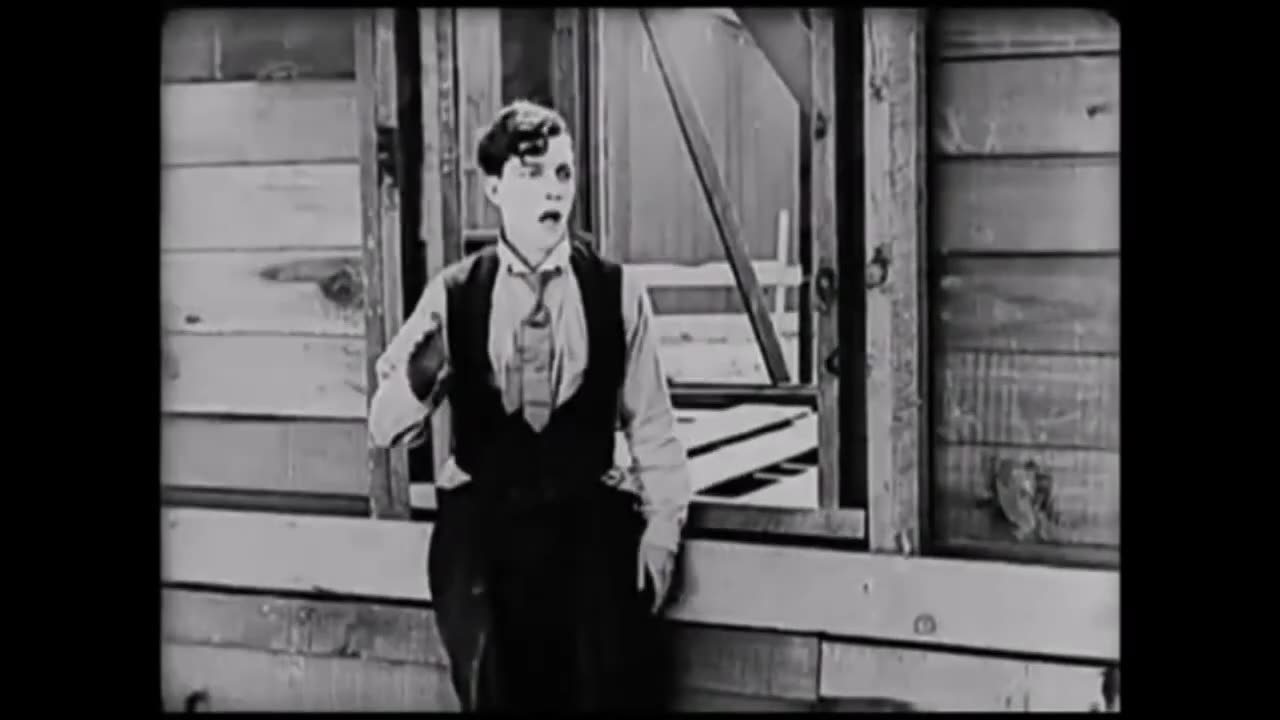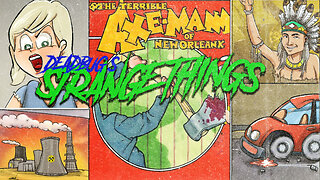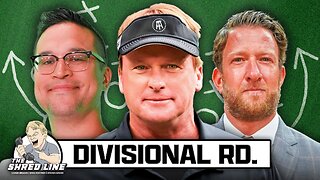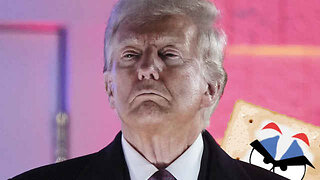Premium Only Content

Woke politics don't work.
Woke Don't Work
Words/music original.
Copyright 2023. All Rights Reserved.
Video Buster Keaton "One Week" (1920) in the public domain.
Woke Don't Work
Call me a jerk
But I say woke don't work
Call me a fool
But we need basic rules
I know it's pleasing to do what I please
But our enemies smirk
They see woke don't work
We're lost in the murk
Because woke don't work
Woke politics, a term that has gained prominence in recent years, refers to a social and political movement characterized by its emphasis on social justice, equity, and awareness of systemic inequalities, particularly those related to race, gender, and other marginalized identities. While proponents argue that woke politics is essential for addressing historical injustices and creating a more inclusive society, critics contend that it can be divisive and stifling of free speech. In this essay, we will critically examine the key aspects of woke politics, its goals, and the controversies surrounding it.
Woke politics has its roots in social justice activism and critical theory. It emerged as a response to deep-seated inequalities and historical injustices that persist in society. Advocates argue that it is necessary to recognize these disparities and work towards a more equitable world.
Woke politics has generated significant controversy.
Woke politics, with its focus on social justice and equity, has undeniably brought attention to important issues related to discrimination and inequality. It has prompted necessary conversations and driven social change in some instances. However, it is equally true that the movement has faced significant criticism, particularly regarding issues of free speech, cancel culture, and divisiveness.
In evaluating woke politics, it is essential to strike a balance between addressing historical injustices and preserving the principles of open dialogue and free expression.
Buster Keaton, born Joseph Frank Keaton in 1895, is celebrated as one of the greatest silent film comedians and filmmakers of the early 20th century. His iconic deadpan expression, remarkable physical agility, and innovative approach to filmmaking have left an indelible mark on the history of cinema.
Keaton's career began in vaudeville, where he earned the nickname "Buster" after an incident in which he fell down a flight of stairs unharmed as a child. This resilience and physicality would become his trademarks in the world of silent film.
One of Keaton's most notable features was his stone-faced demeanor, earning him the nickname "The Great Stone Face." He used this expression to create humor through absurd and chaotic situations. His ability to maintain his composure amidst chaos, as buildings collapsed around him in films like "Steamboat Bill, Jr." and "The General," showcased his remarkable timing and physical comedy prowess.
What set Keaton apart from his contemporaries was his hands-on involvement in filmmaking. He often directed, wrote, and edited his own films, giving him creative control that was rare in the era. His innovative use of practical effects and daring stunts, such as the famous train scene in "The General," pushed the boundaries of what was possible in filmmaking at the time.
Keaton's influence on future generations of comedians and filmmakers cannot be overstated. Filmmakers like Quentin Tarantino and Jackie Chan have cited Keaton as a major source of inspiration. His timeless humor and groundbreaking cinematic techniques continue to captivate audiences today.
Buster Keaton's contributions to the world of cinema are immeasurable. His unique brand of physical comedy, deadpan expression, and pioneering filmmaking techniques have secured his legacy as a silent film genius. Buster Keaton's films remain a testament to the enduring power of laughter and innovation in the world of entertainment.
-
 12:19
12:19
DEADBUGsays
19 hours agoSTRANGE THINGS #13
7.01K1 -
 16:28
16:28
Fit'n Fire
1 day ago $0.24 earnedBeretta 92X RDO Centurion and Cyelee SRS8 Chameleon Red Dot
5.22K1 -
 59:10
59:10
barstoolsports
18 hours agoThe Shred Line with Coach Gruden, Dave Portnoy, and Steven Cheah | Divisional Round
43.5K4 -
 2:09:40
2:09:40
TheSaltyCracker
11 hours agoHe's Back ReeEEeE Stream 01-19-25
218K290 -
 4:41:03
4:41:03
Due Dissidence
20 hours agoCeasefire IN EFFECT, Bibi WARNS It's Temporary, TikTok BANNED, Chappelle's Pro-Palestine Monologue
75.6K33 -
 2:15:15
2:15:15
Nerdrotic
13 hours ago $10.65 earnedThe Absolute State of UFOlogy | Forbidden Frontier #088
71K15 -
 DVR
DVR
GOP
16 hours agoPresident Trump’s Celebratory Victory Rally
117K45 -
 8:46:00
8:46:00
Right Side Broadcasting Network
6 days agoLIVE REPLAY: President Donald J. Trump Holds Inauguration Eve Rally in Washington D.C. - 1/19/25
846K333 -
 2:27:15
2:27:15
vivafrei
21 hours agoEp. 246: Eve of Trump's Inauguration! Confirmation Hearings Analysis! TikTok Goes Dark & MORE!
244K141 -
 11:37:48
11:37:48
Vigilant News Network
17 hours agoBill Gates’ New Bioterror Project Exposed | Media Blackout
134K69